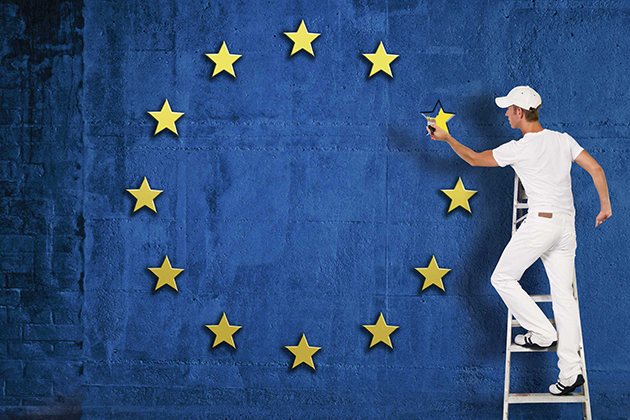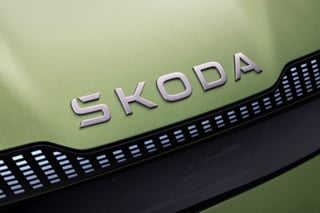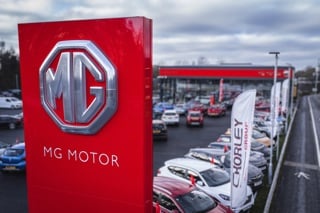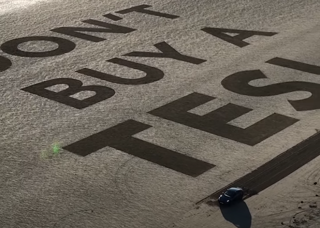European car makers are demanding that Brussels postpone the impact of a Brexit trade deal for three years to prevent tariffs being imposed on electric vehicles (EV) traded between the EU and the UK.
"Rules of origin" which come into force in January will apply to cars both imported and exported across the Channel under the terms of the UK-EU Trade and Cooperation Agreement which was struck as part of the Brexit negotiations.
Should the value of a vehicle’s locally sourced components fall short, then an import tariff of 10% will be applied to car shipped across the Channel, in either direction.
European car makers are demanding that Brussels postpone the impact of a Brexit trade deal for three years to prevent tariffs being imposed on electric vehicles (EV) traded between the EU and the UK.
"Rules of origin" which come into force in January will apply to cars both imported and exported across the Channel under the terms of the UK-EU Trade and Cooperation Agreement which was struck as part of the Brexit negotiations.
Should the value of a vehicle’s locally sourced components fall short, then an import tariff of 10% will be applied to car shipped across the Channel, in either direction.
The rules were designed to protect the European industry from cheap imports but EVs are problematic because battery production in Europe has not ramped up sufficiently and because the battery makes up a significant portion of an EV’s value.
Until 1 January 2024, only 40% of an EV’s value needs to be made up of localised parts, rising to 45% after this date until 31 December 2026. A 55% requirement will begin at the start of 2027.
Carmakers in the UK and EU will therefore struggle to meet the new criteria as they remain reliant on sourcing components from outside the UK and the EU. As such, their cars will face the 10% tariffs when traded across the Channel, in either direction.
The European Automobile Manufacturers’ Association (ACEA) is warning that should the European Commission fail to act, it will cost EU car makers £3.75 billion over the next three years, potentially reducing electric vehicle production by some 480,000 cars, the equivalent output of two average-size auto factories.
ACEA said that the only way to avoid these duties would be to source all battery parts and some critical battery material in the EU/UK although this is, as it points out, is ‘practically impossible to achieve today’.
“Driving up consumer prices of European electric vehicles, at the very time when we need to fight for market share in the face of fierce international competition, is not the right move – neither from a business nor an environmental perspective,” said Luca de Meo, ACEA president and CEO of Renault Group. “We will effectively be handing a chunk of the market to global manufacturers.”
“Europe should be supporting its industry in the net-zero transition as other regions do – not hindering it,” added de Meo. “There is a very simple and straightforward solution: extend the current phase-in period for battery rules by three years. We urge the Commission to do the right thing.”
It said that while massive investments are being made in European battery supply chains, but more time is needed to build up the kind of scale needed to meet the rules of origin.
In a separate statement, ACEA noted the September 25 agreement on Euro 7 reached by national ministers.
Euro 7 is a new regulatory proposal put forward by the European Commission last year to further reduce pollutant emissions from cars, vans, trucks and buses.
“The member states’ position is an improvement on the European Commission’s Euro 7 proposal – which was entirely disproportionate, driving high costs for industry and customers, with limited environmental benefits,” said ACEA director general, Sigrid de Vries.
“The Council’s aim to continue the effective Euro 6/VI tests is sensible. However, compared to what is in place today, Euro 7 is much broader for new cars, vans and, in particular, heavy-duty vehicles, requiring significant engineering and testing efforts. As such, it will require huge additional investments from our industry at a time when it is pouring all its resources into decarbonisation.”
“Our industry is fully committed to tackling air pollution and climate change,” de Vries added. “We now call on member states, the European Parliament, and the Commission to work towards a Euro 7 regulation that will enable us to focus on these dual objectives while keeping vehicles affordable and our sector competitive.”
Login to continue reading
Or register with AM-online to keep up to date with the latest UK automotive retail industry news and insight.





















Login to comment
Comments
No comments have been made yet.